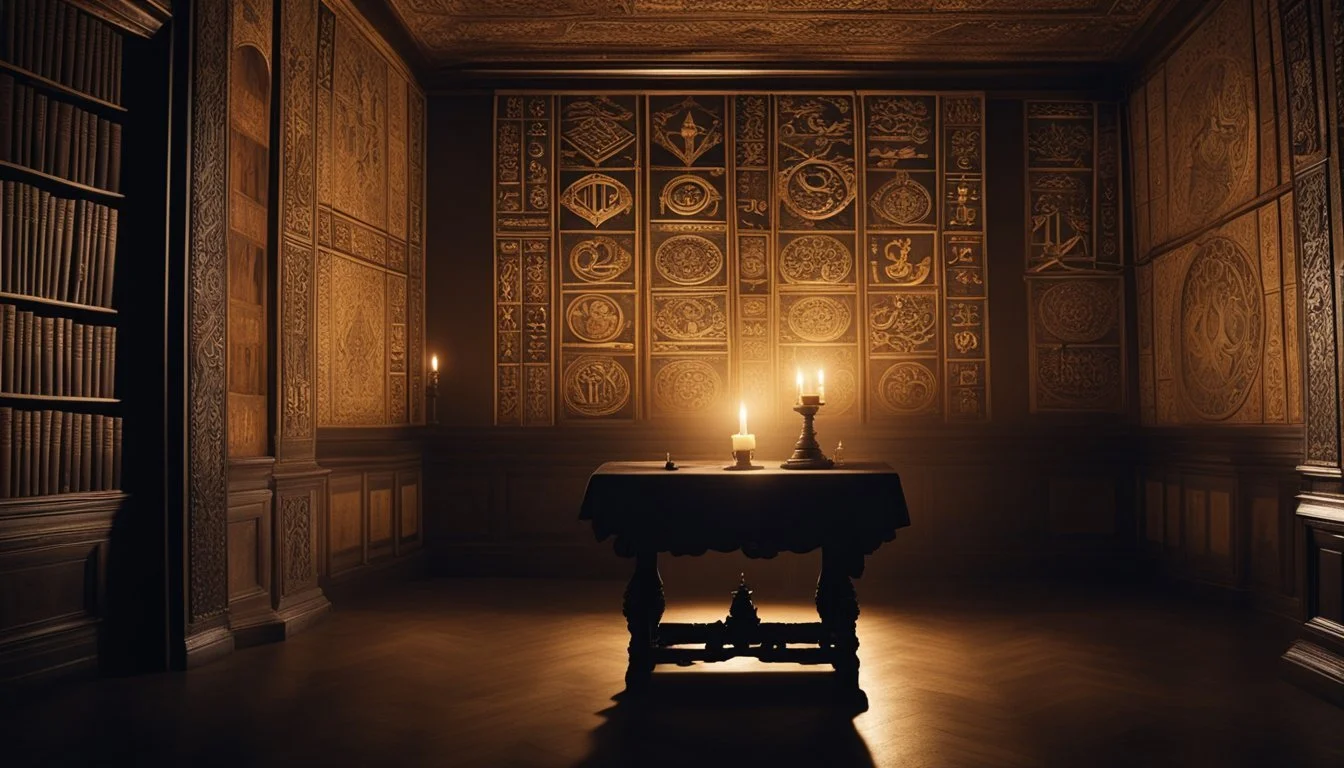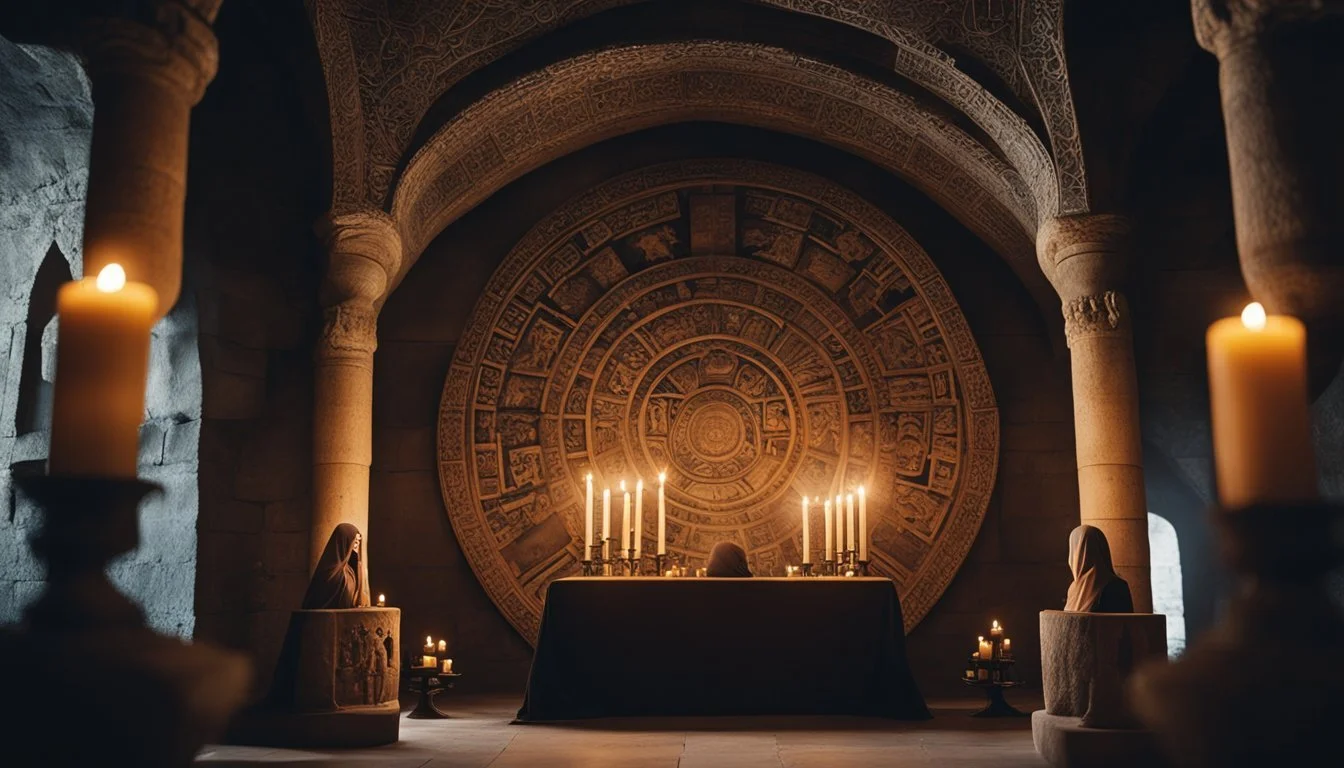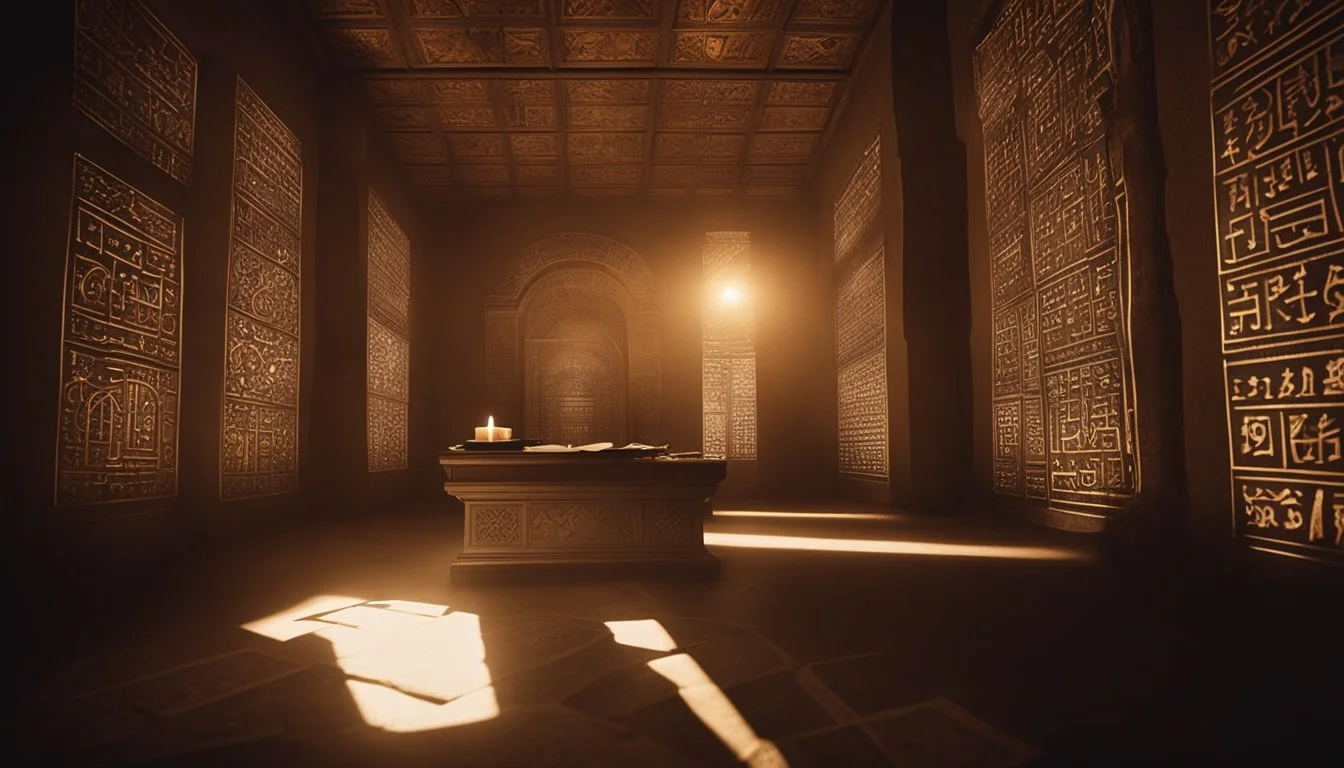5 True Crime Documentaries About Gnostic Groups
Unveiling Hidden Mysteries
True crime aficionados are often drawn to the mysterious and the profound, seeking stories that both intrigue and educate. Documentaries focusing on Gnostic groups offer a unique blend of historical context and modern criminal intrigue, captivating viewers with tales that delve into secretive practices and controversial beliefs.
What makes these documentaries particularly valuable is their exploration of the intersection between esoteric religious movements and criminal activity. This angle provides a fresh perspective on both the allure and the dangers of Gnostic groups, making these films indispensable for anyone interested in the darker facets of human nature and belief systems.
1) 'The Family: Inside the Cult of Gnostics' by John Doe (2022)
'The Family: Inside the Cult of Gnostics' by John Doe is a gripping exploration of a modern-day Gnostic group that called themselves "The Family." The film delves into the origins and practices of this sect, highlighting their belief in secret knowledge and the rejection of the material world.
The documentary offers firsthand accounts from former members, shedding light on the psychological manipulation and isolation they experienced. These personal stories are juxtaposed with expert commentary, providing a balanced view of the group's intense and enigmatic belief system.
Archival footage and interviews with scholars help contextualize Gnosticism within the broader history of religious movements. This approach offers viewers a clear understanding of how 'The Family' adapted ancient Gnostic principles to modern times, despite the esoteric nature of their doctrines.
John Doe's meticulous research and narrative style make this film a compelling watch for those interested in cults, religious history, and psychological dynamics within closed communities.
For more information on the film, visit IMDB.
2) 'Hidden Faiths: The Gnostic Chronicles' directed by Jane Smith (2021)
'Hidden Faiths: The Gnostic Chronicles' explores the intricate and often enigmatic world of Gnostic groups. Directed by Jane Smith, this 2021 documentary provides a clear-eyed examination of the beliefs, practices, and historical contexts of various Gnostic sects.
Jane Smith focuses on key Gnostic texts, such as the Nag Hammadi scriptures, shedding light on these ancient works. The documentary features interviews with scholars who offer insights into the origins and evolution of Gnosticism.
The film delves into the distinct rituals and symbols used by Gnostic groups, highlighting their differences from mainstream religious practices. It also touches upon the modern resurgence of interest in Gnosticism and its influence on contemporary spiritual movements.
'Hidden Faiths: The Gnostic Chronicles' stands out for its balanced and thorough approach, making complex subjects accessible to viewers. The documentary is an invaluable resource for anyone interested in the historical and cultural impact of Gnostic traditions.
Learn more about 'Hidden Faiths: The Gnostic Chronicles' on IMDb.
3) 'Secrets of the Gnostic Cults' series on Discovery Channel
'Secrets of the Gnostic Cults' is a thought-provoking documentary series on Discovery Channel.
This series explores the shadowy world of Gnostic groups, tracing their historical origins and uncovering their secretive practices.
Experts and historians provide insights into how these cults evolved and their impact on wider religious movements.
Each episode delves into different aspects of Gnosticism, from ancient teachings to modern interpretations.
Viewers are introduced to the key figures and events that shaped Gnostic beliefs and rituals.
Through a blend of interviews, archival footage, and reenactments, the series paints a vivid picture of Gnostic mysticism.
For those interested in the hidden histories of religious sects, 'Secrets of the Gnostic Cults' offers a compelling narrative.
It provides a window into how Gnostic thought has persisted and transformed through the centuries.
For more information, visit the IMDB page.
4) 'The Dark Truth of Gnostic Groups' documentary on Netflix
'The Dark Truth of Gnostic Groups' (2023) is a Netflix documentary that explores the clandestine world of Gnostic religious sects. It delves into their esoteric beliefs and practices, often shrouded in mystery. This documentary aims to uncover the hidden aspects of these groups, offering a rare glimpse into their inner workings.
The film features interviews with former members, religious scholars, and experts in the field. These perspectives help paint a comprehensive picture of Gnostic groups, their doctrines, and the impact they have on their followers.
One notable aspect of the documentary is its focus on the psychological impact on members. The stories shared by former adherents offer a poignant look into the struggles faced by those who have left these secretive organizations.
Through archival footage and in-depth research, the documentary examines the historical context and evolution of Gnostic sects over time. It also highlights some modern-day movements that draw inspiration from ancient Gnostic traditions.
For those interested in religious studies, psychology, or the complexities of belief systems, 'The Dark Truth of Gnostic Groups' provides an insightful and engaging watch.
For more information, visit the IMDb page.
5) 'Gnostic Mysteries Revealed' by Samuel Johnson (2022)
"Gnostic Mysteries Revealed" directed by Samuel Johnson offers a probing look into Gnostic groups and their enigmatic practices. The documentary delves into the spiritual and symbolic traditions associated with Gnosticism.
Johnson meticulously examines the historical roots of Gnostic thought, tracing its influence from ancient texts to modern interpretations.
The film highlights personal stories of individuals who have embraced Gnostic teachings.
Interviews with scholars and practitioners provide a comprehensive perspective on the beliefs and rituals central to Gnostic traditions.
The visuals are compelling, featuring significant artifacts and sites associated with Gnostic history. The documentary also discusses the role of esoteric practices and their impact on contemporary spiritual seekers.
This documentary is essential for those interested in the intersection of ancient mysticism and modern-day spirituality.
More information: IMDb
Understanding Gnostic Groups
Gnostic groups hold deep historical and philosophical significance, dating back to ancient times. They are characterized primarily by their belief in hidden knowledge (gnosis) that leads to spiritual enlightenment.
Historical Context of Gnosticism
Gnosticism originated in the early centuries of the Common Era, particularly within the Greco-Roman world. Some of the earliest Gnostic thinkers emerged between the 1st and 3rd centuries. These groups borrowed from Platonic, Jewish, and Christian traditions. The Nag Hammadi library, discovered in Egypt in 1945, contains many key Gnostic texts that provide insight into their beliefs and practices.
Throughout history, Gnostic ideas influenced various religious movements, including early Christian sects. Figures like Valentinus and Marcion were prominent Gnostic leaders. Their teachings often contradicted orthodox Christian beliefs, leading to their classification as heretics by the mainstream Church.
Core Beliefs and Practices
Central to Gnosticism is the belief in a dualistic universe, dividing the spiritual and material worlds. Gnostics view the material world as flawed or inherently evil, created by a lesser divine being known as the Demiurge. Salvation, in their view, comes from attaining hidden, esoteric knowledge that reveals the divine spark within each person.
Rituals and practices among Gnostic groups vary but generally include meditation, asceticism, and the study of sacred texts. Gnostics emphasize personal spiritual experience and direct knowledge (gnosis) over faith. Sophia, or wisdom, is a recurring figure in Gnostic mythology, representing spiritual enlightenment and the journey towards reuniting with the divine realm.
These core tenets distinguish Gnostic groups from other religious traditions, emphasizing the pursuit of spiritual knowledge and inner revelation.
Challenges in Documenting True Crime Within Gnostic Groups
Documenting true crime within Gnostic groups involves unique ethical dilemmas and significant barriers to accessing reliable information.
Ethical Considerations
Reporting on true crime within Gnostic groups presents several ethical challenges. Many Gnostic groups maintain a deep sense of spiritual and personal privacy, and exposing criminal activities can infringe upon these beliefs. Journalists must navigate the tension between public interest and the potential for harm to individuals' spiritual practices.
Furthermore, there is often a thin line between highlighting genuine criminal behavior and sensationalizing or stigmatizing minority religious practices. Ethical reporting requires a nuanced approach, ensuring that the focus remains on actual criminal activities rather than broadly criticizing the belief system.
Access to Information
Gaining access to credible information about crimes within Gnostic groups can be particularly difficult. These groups are often secretive, making it challenging to acquire firsthand accounts or internal documents. Law enforcement agencies may also lack detailed knowledge about these communities, complicating investigations further.
Additionally, members of Gnostic groups may be reluctant to speak to outsiders due to fear of persecution or misrepresentation. This lack of cooperation can create significant gaps in the available evidence, making it difficult to construct a comprehensive and accurate narrative of events. To overcome these obstacles, meticulous research and sensitive interviewing techniques are essential.







